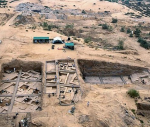You are here
Manipulation of tribalism as illustrated in King's remarks
Oct 03,2018 - Last updated at Oct 03,2018
A heated debate surfaced over tribalism after a group of angry men from the same tribe attacked a family when the father drove past a wedding procession on Mafraq Highway, leading to the death of a toddler that His Majesty King Abdullah mentioned by name, Hashem Al Kurdi, when he met with top journalists this week.
The context was about the rule of law and His Majesty's utter rejection of any reluctance to enforce the law on all "without hesitance or favouritism", affirming that "no one is bigger than the country".
We do not even have to read between the lines of the King's remarks, as his message was loud and clear.
At first glance, we realise that the cases His Majesty cited of disrespect of law and order involved people who relied, one way or another, on the protection of their tribes and their connections within the establishment when they acted with a mob mentality and not only broke the law, but also insulted the core values of our respected tribes.
As some have put it, the behaviour of the murderers of Kurdi was not unfamiliar, as certain groups believe that when their wedding processions are out there, other motorists have no other choice but to trail behind, even when the procession stops midway and young men jump to dance in the street and put on a show of festive firing. If you think of protesting, sounding the horn or just driving past them peacefully, you would better think again.
The King spoke of people who would normally uphold the law, but "end up disregarding [it] when it is not in line with their interests or those of their relatives".
Another incident was when a group of educated men and university employees, including academics, forced a university president out of his office. Few would disagree that in the back of their minds, these people knew that their influential relatives would step forward and try to help them get away with their misdeed. Even in the case of school vandalism reported recently, grabbing headlines and going viral on social media platforms, the incident took place in a homogeneous community, where members stand with each other in weal and woe.
In all of these cases, the law is the victim, as well as true tribalism, which has once been the law of the land before the state was established, when the ruling Ottomans left communities in the region on their own. Back then, tribalism meant justice, protection of the vulnerable, chivalry, hospitality and altruism.
And even after Jordan was established and a national identity evolved, individuals who did good deeds opted for that because they were good citizens, good Muslims or good Christians, but tribesmen had an extra motive: To give a good name to their families.
Even during tribal wars, children, women and the elderly were left untouched and in the protection of the invading tribe's sheik. If the tribal law was still in effect, the eight men implicated in the murder of the child would immediately reap what they have sown: An eye for an eye, and their tribe would do nothing but to comply with the ruling of the designated tribal judge.
The painful question is why the joint police-Gendarmerie patrol stood by and did nothing to protect a Jordanian family that believed that there was a law in the country.
“Unfortunately, we are not moving forward, and things are actually getting worse,” the King told his audience on Monday. You can say that again, sir.
The writer is the deputy chief editor of The Jordan Times












